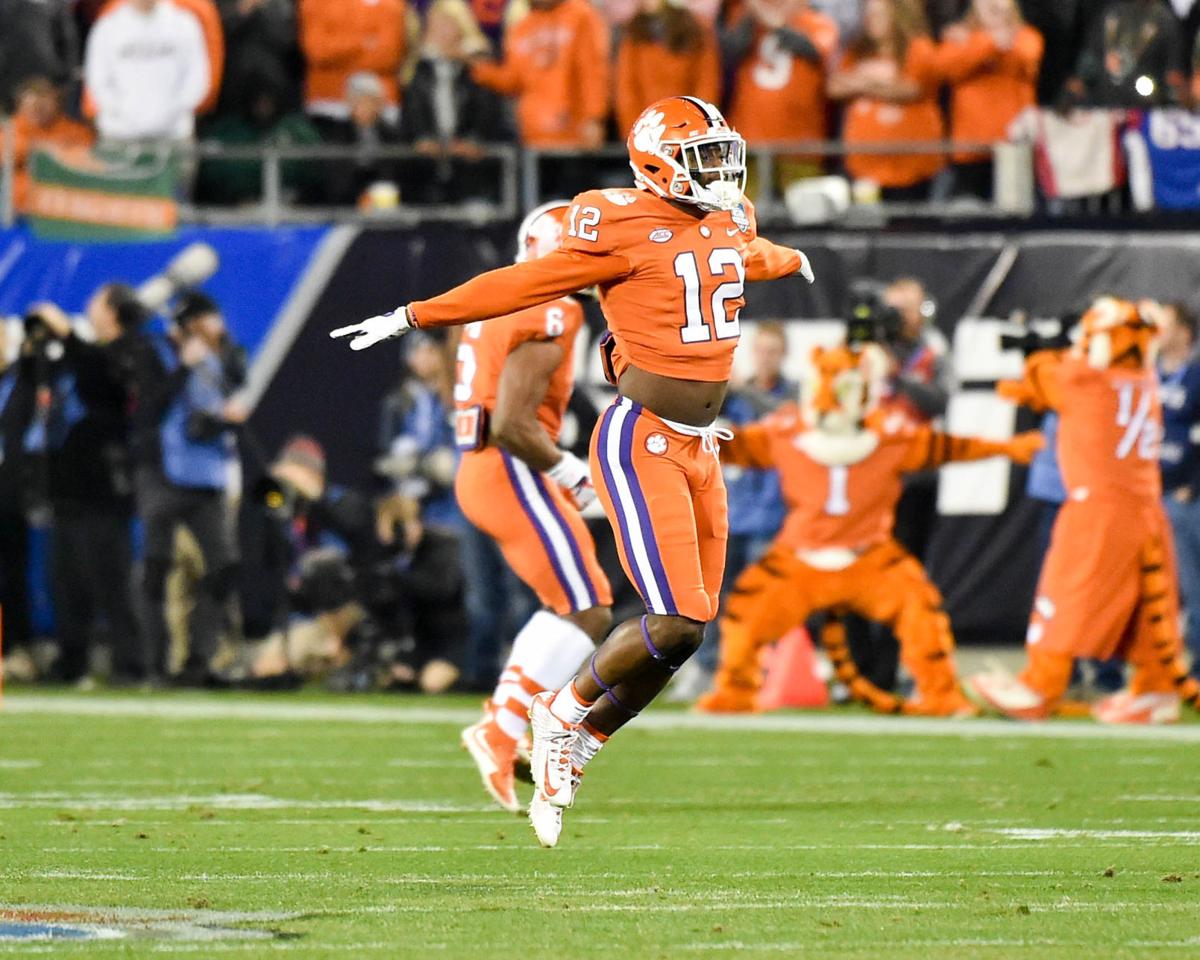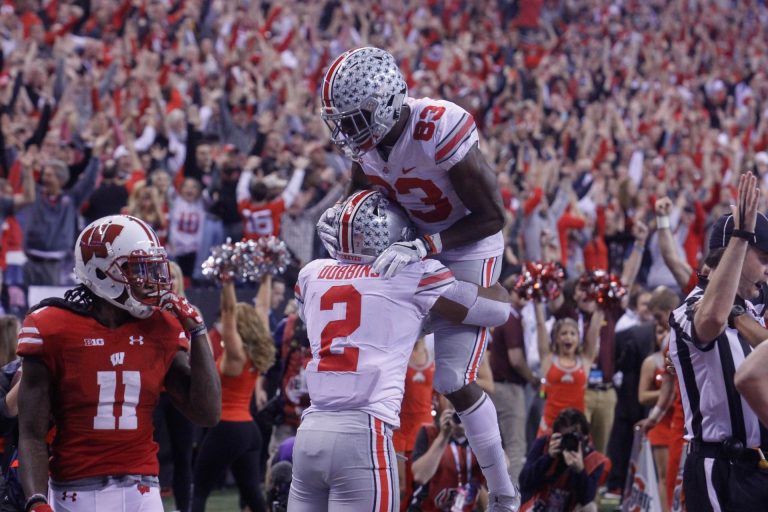I'm okay with what the College Football Playoff has done, because it allows for more settling things on the field than the old BCS did. That's why Dan Wetzel, Josh Peter, and Jeff Passan wrote the pictured book tearing the BCS to shreds and offering up their solution, which I've adopted as my hope for the eventual playoff. This is a 16 team field where every conference champion makes it, thus making the regular season more meaningful for more teams and allowing access to all teams. We then fill the field with six at large teams, which for some may seem like a lot, but I think it's a fair number and it makes the bracket even.
So how are these teams decided? Wetzel, Peter, and Passan recommended a selection committee, but in its absence I took on that role singlehandedly, though I didn't do so alone. I use a number of metrics, which are explained to some degree in every mock bracket post but gone into greater detail back in my season introduction post. For your reference, my NCSS and Playoff Points scores can be found here, while the computer rankings can be found here, here, and here.
Armed with this information, and seeing all ten automatic bids awarded, I can build out the playoff field. In the rankings below I'll have each team's record and their relevant scores and rankings. As a new feature, after showing where each team was seeded last week, I will also share how many times each team has made the playoffs before. You can find a full archive of that, along with postseason records by team, conference, and seed, here.
And so, without further ado, here is the official field for the 2017 Death to the BCS Playoffs!
- Clemson (12-1, ACC Champion)- NCSS: 5, PP1: 70, PP2: 32.00, aPP: 62; SAG: 2, ROTH: 1, AMSTS: 2 (LW: 2; 3rd appearance, 3rd consecutive)
- Georgia (12-1, SEC Champion)- NCSS: 5, PP1: 65, PP2: 28.82, aPP: 63; SAG: 3, ROTH: 2, AMSTS: 3 (LW: 5; 2nd apperance, 1st since 2012)
- Oklahoma (12-1, Big 12 Champion)- NCSS: 5, PP1: 62, PP2: 24.00, aPP: 57; SAG: 5, ROTH: 4, AMSTS: 7 (LW: 6; 5th appearance, 3rd consecutive)
- Alabama (11-1, At Large)- NCSS: 3, PP1: 65, PP2: 25.64, aPP: 63; SAG: 1, ROTH: 8, AMSTS: 4 (LW: 4; 6th appearance, 6th consecutive)
- Ohio State (11-2, Big Ten Champion)- NCSS: 4, PP1: 59, PP2: 26.60, aPP: 53; SAG: 4, ROTH: 6, AMSTS: 5 (LW: 9; 5th appearance, 5th consecutive)
- Wisconsin (12-1, At Large)- NCSS: 4, PP1: 69, PP2: 25.67, aPP: 69; SAG: 7, ROTH: 5, AMSTS: 6 (LW: 1; 3rd appearance, 2nd consecutive)
- UCF (12-0, American Athletic Champion)- NCSS: 3, PP1: 60, PP2: 20.82, aPP: 60; SAG: 16, ROTH: 3, AMSTS: 1 (LW: 7; 2nd apperance, 1st since 2013)
- Auburn (10-3, At Large)- NCSS: 4, PP1: 60, PP2: 29.60, aPP: 56; SAG: 8, ROTH: 7, AMSTS: 9 (LW: 3; 2nd appearance, 1st since 2013)
- Miami (Florida) (10-2, At Large)- NCSS: 1, PP1: 58, PP2: 28.00, aPP: 51; SAG: 15, ROTH: 11, AMSTS: 12 (LW: 8; 1st appearance)
- Notre Dame (9-3, At Large)- NCSS: 26, PP1: 61, PP2: 35.22, aPP: 56; SAG: 10, ROTH: 10, AMSTS: 10 (LW: NR; 3rd appearance, 1st since 2015)
- USC (11-2, Pac 12 Champion)- NCSS: 5, PP1: 58, PP2: 25.60, aPP: 52; SAG: 13, ROTH: 12, AMSTS: 13 (LW: 10; 2nd apperance, 2nd consecutive)
- Stanford (9-4, At Large)- NCSS: 4, PP1: 52, PP2: 29.11, aPP: 45; SAG: 11, ROTH: 17, AMSTS: 16 (LW: 12; 4th appearance, 1st since 2015)
- Boise State (10-3, Mountain West Champion)- NCSS: 8, PP1: 55, PP2: 22.22, aPP: 43; SAG: 36, ROTH: 47, AMSTS: 25 (LW: NR; 3rd apperance, 1st since 2014)
- Toledo (11-2, MAC Champion)- NCSS: 5, PP1: 43, PP2: 15.50, aPP: 38; SAG: 50, ROTH: 48, AMSTS: 19 (LW: 14; 1st apperance)
- Florida Atlantic (10-3, Conference USA Champion)- NCSS: 5, PP1: 48, PP2: 19.33, aPP: 37; SAG: 57, ROTH: 57, AMSTS: 26 (LW: 13; 1st apperance)
- Troy (10-2, Sun Belt Champion)- NCSS: 5, PP1: 46, PP2: 15.80, aPP: 35; SAG: 72, ROTH: 74, AMSTS: 35 (LW: 16; 1st appearance)
To view the official bracket, click here.
| Photo by Stephen M. Dowell (Orlando Sentinel) |
- The reason I put that notice about teams being "blocked" is that, arguably, the best team left on the board at this point is Alabama. Their 65 PP1 are tied for third most and 63 aPP are tied for second most, and when you combine the computer rankings into this, the Crimson Tide are the first team off the board, leapfrogging Auburn out of the SEC.
- Wisconsin is my next team to come off the board. Even though they lost out on their perfect season, their 69 PP1 are the second most in the country, and that total is also tops in aPP (remember, conference championship games don't count towards Playoff Points). Of the remaining teams on the board, they have the best aggregate computer rankings. This was a fairly easy choice.
- I go back to the SEC with this pick and grab Auburn. The Tigers beat Alabama head to head, but have three losses including the SEC title game, though they have more impressive wins despite a lower Playoff Point total (tied for 7th in both PP1 and aPP). The fact that they have the next-best aggregate computer rankings put them in the field.
- The fourth spot was where I started to struggle. Ultimately, I couldn't ignore the resume of Miami (Florida), who ranked tied for 11th in PP1 and 12th in aPP, and have among the best computer rankings of teams remaining, except for Notre Dame, who they beat head to head.
- Speaking of them, Notre Dame sneaks back into the playoffs after being out last week. Normally, I'm not crazy about a three loss team being in, but they finished 6th in PP1, 1st in PP2, and 7th in aPP, while every computer ranking had them tenth. A win over a playoff team in USC, despite losses to two other teams already in the field in Georgia and Miami, is enough to get them in.
- This last spot was a very difficult one. Washington and Stanford were tied in PP1, with the Cardinal holds a big edge in PP2 and a slight one in aPP. The computers favor Washington, but Stanford has a head to head win and a win against a playoff team, something none of my other candidates have. Stanford gets the 16th and final berth.
 |
| Photo by Ron Jenkins (Getty Images) |
Now with that out of the way, let's get to the seeding. Wisconsin losing threw a major monkey wrench into everything. I do want to note here though that, in addition to the aforementioned factors like Playoff Points, computer rankings, and records against other playoff teams, I'm also factoring in regular season schedules in the sense that I will have no first round rematches, and will do my best to avoid second round rematches as well. Anything in the semis or beyond I'm okay with.
 |
| Photo by Donny Knight (donnyknightphotography.smugmug.com) |
 |
| Photo by James King II (The Lantern) |
/cdn.vox-cdn.com/uploads/chorus_image/image/57838571/usa_today_10451548.0.jpg) |
| Photo by John Hefti (USA TODAY Sports) |
| Photo by Darin Oswald (Idaho Statesman) |
The Death to the BCS Playoffs are set to kick off on Saturday, December 16th. I'll be back on the 17th with a look at the results from that opening round! To the 16 teams who will compete for a virtual crown that arguably means more than the title the College Football Playoff will hand out (even though the top four teams are the same): good luck!
No comments:
Post a Comment